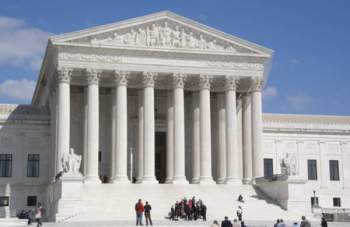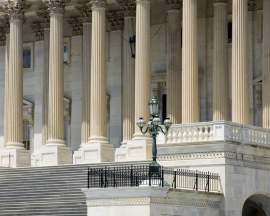
Who Is Patrick Henry

Popular In Constitution
Purpose Of Lifetime Appointment And Pros And Cons Enumerated Powers Bicameral Legislature Background Article 3 Of The Constitution We The People 1st Amendment Who Wrote The Constitution Judicial Review Equal Protection Clause 5th Amendment 10th Amendment Three Fifths Compromise
From 1776-1779 and 1784-1786, Patrick Henry served multiple terms as post-colonial Governor of Virginia. Henry, who is most widely remembered for his rousing "give me liberty give me death" speech, is considered one of the most influential and radical Founding Fathers in United States history.
All Founding Fathers had an influence in the creation of the American Constitution or the separation from the British Monarch, the means or efforts, however, vary in terms of ferocity and candidness. Along with Thomas Paine and Samuel Adams, Patrick Henry is commonly referred to as the most boisterous advocate for the American Revolution, and more specifically, Republicanism.
Patrick Henry was a firm believer in "clean" governments and refused to accept corruption among Government officials. Henry's fervent beliefs on Government actions greatly augmented a unifying uprising against British rule. Some of the chief causes of the Revolutionary War simply stemmed from influence and rhetoric of various leaders such as Patrick Henry.
During the mid-1760s, to fund wars and balance a deficit, the
British imposed a series of levies on consumer goods and imports. In response
to the unjust Stamp Act of 1765, Patrick Henry published what is commonly
referred to as the most anti-British piece of legislation ever. Although Henry
was considered just a rookie in Virginia's legislative body (House of
Burgesses), the young politician successfully produced and argued for the
passing of the Virginia Stamp Act Resolutions.
The proposal, written by Henry,
contained such extreme language that it is commonly referred to as one of the
significant causes of the Revolutionary War. Patrick Henry stated the violation
of many principles within the document, including Britain's unfair enforcement
of taxation on citizens not represented by Parliament. Since America was
founded, British law claimed that the colonials would only be taxed by
governing bodies which represented them. The Stamp Act was a prime example of
treason and one of the many significant causes of the Revolutionary War.
Enraged by the tyrannous actions of the British government, Patrick Henry
vehemently sought justice through passionate and defiant speeches.
On March 23rd, 1775, the House of Burgesses was vacillating
between mobilizing an army against the British Empire or withholding troops and
continuing a non-active approach. Although the exact words of the speech are
debated, Patrick Henry gave an impassioned rallying cry to his fellow
politicians in the favor of mobilization. Henry concluded his speech with what
is now regarded as immortalized American rhetoric, "Is life so dear, or
peace so sweet, as to be purchased at the price of chains and slavery? Forbid
it, Almighty God! I know not what course others may take; but as for me, Give
me Liberty, or give me Death!" The crowd in response to such a powerful
speech rose to their collective feet and let out a raucous yell in support of
mobilization. Powerful words such as these were a great spark and one of the
causes of the Revolutionary War.
During the Revolutionary War Patrick Henry served as a colonel of
the 1st Virginia Regiment and led the militia to victory in numerous battles.
Following the war, Henry retained his position as Governor of Virginia in 1784.
Although invited, Henry strongly disfavored the Constitution and refused to
attend the Constitutional Convention of 1787.
Henry was a strong supporter of individual freedoms and firm believer in the attainment of State rights. Ashamed by the power awarded to the central government, Henry led his fellow Virginians to reject the ratification of the United States Constitution.
Patrick Henry was arguably the leading and most influential member of the Anti-Federalist Party. Before he passed away in 1799 Henry promised himself and his fellow supporters that a Bill of Rights would be included in the amended Constitution. Along with other Founding Fathers, Patrick Henry was influential in the adoption and increased momentum for the inclusion of individual rights in the Constitution. Although an arduous process, Henry eventually reached his goal, for the first 10 Amendments of the United States Constitution unequivocally grants freedoms and liberties to the individual American.
NEXT: Roger Sherman





















